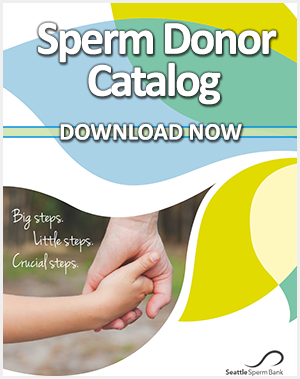Sperm banks offer a unique level of reproductive freedom to single women and couples, by providing a tremendous amount of choice when it comes to decisions about having children. This brief article addresses some important facts about sperm banks and the role they play in modern reproductive technology.
Sperm banking is a not a new technology.
Although they are increasing in popularity in the United States, Europe and other parts of the world, sperm banks have been around for almost half a century. The first two sperm banks were opened in 1965 in Iowa City, Iowa and Tokyo, Japan.
Donor sperm is utilized by both single women and couples.
Sperm banks are widely utilized by infertile couples as well as single women and women in lesbian relationships. Some statistics indicate that as many as one in eight infertile couples require the use of donor sperm to conceive. At European Sperm Bank, approximately 30% of clients are infertile couples.
Sperm banks follow strict donor screening and testing regulations.
Since May 25, 2005, the Food and Drug Administration (FDA) has regulated reproductive tissue banks, including sperm banks. All sperm banks, including Seattle Sperm Bank, are required by the FDA to thoroughly screen and test donors before accepting sperm for donation. In addition to providing extensive information regarding personal and family medical histories, donors must undergo a physical examination, blood and urine testing, and semen analysis. Donors are tested for communicable diseases, including HIV, Hepatitis B, and other sexually transmitted diseases, as well as genetic disorders. In addition, sperm banks generally require donors to provide detailed information about their personal habits, education, hobbies and interests. At European Sperm Bank, less than 9% of applicants are accepted as sperm donors. For more details regarding the screening and testing conducted by Seattle Sperm Bank, see the Donor Screening tab on the website.
Sperm donations may be made by anonymous donors or open-identity donors.
Traditionally, sperm banks have maintained the anonymity of their sperm donors. However, in recent years, there has been a push towards the use of open-identity or ID-release donors. These donors generally agree to at least one contact by the child when the child reaches a certain age – usually 18. One recent study indicates that about 1/3 of children conceived from open-identity sperm seek contact with their sperm donor and several European countries no longer permit anonymous sperm donation. Seattle Sperm Bank only accepts open-identity sperm donors into its sperm donation program.
Statistics
Pregnancy rates with donor insemination depend on a number of factors, including age of the woman, presence or absence of fertility issues, and method of insemination. Information published by the American Society of Reproductive Medicine (ASRM) indicates that the monthly chance of pregnancy from donor insemination is 8% to 15%. Although no sperm bank can guarantee a pregnancy will occur, success rates with IUI (intrauterine insemination) are generally higher than with ICI (intracervical insemination) when donor sperm previously frozen by a sperm bank is used. According to the ASRM, the risk of birth defects as a result of conceiving with donor insemination is no different than from conceiving naturally, and is in the range of 2% to 4%.
Infertility treatment, including use of donor sperm, may be covered by insurance.
Many people assume that artificial insemination using donor sperm is not covered by health insurance. While this is often true, infertility is a medical illness and treatment may be covered. Coverage will depend on the state in which you reside and the terms of your policy.
Seattle Sperm Bank is based in Seattle, Washington and works with clients in the US, Canada and Europe. It is an affiliate of European Sperm Bank, one of Europe’s largest sperm banks.

